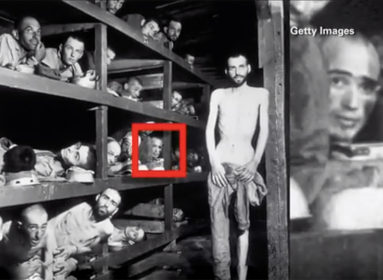By Cindy Mindell
STAMFORD – Melanie Roloff is in seventh grade. Her mother is Israeli and her grandparents live in Israel within commuting distance of Sderot. When Roloff talks about what it must be like to live under constant missile attacks from Gaza, she describes it as “bullying.”
Roloff is no stranger to antisemitic bullying. In fourth grade, she was harassed so badly by classmates that she was forced to change schools. Three years later, The Stamford teen is being trained to help facilitate workshops for “Confronting Anti-Semitism” (CAS), a program of the Anti-Defamation League’s Connecticut Regional Office.
CAS is designed to empower the Jewish community to respond to antisemitic incidents and to challenge the persistent antisemitic myths and stereotypes in which many of these conflicts are rooted.
The program was started in the ‘80s by ADL’s Boston regional office, and is run in a third of the ADL’s 30 regional offices. Connecticut is the only region with a full-time professional program coordinator, and is the only one that includes teen trainers among its facilitators.
Engaging more than 1,000 Jewish teens, parents, and educators throughout the state, CAS workshops help participants understand the problem of antisemitism and offers strategies for handling incidents and becoming an ally to those who are targeted. Through interactive tools and role-play, the program’s workshops help Jewish teenagers and their families develop a strong, positive Jewish identity and acquire the tools and skills necessary to effectively and assuredly respond to insensitive behavior, bias, and prejudice.
“One morning in fourth grade, I walked into the classroom and saw two boys at me and laughing. I felt embarrassed because I didn’t know what happened. Did I have something on my face or in my teeth? Did I do the homework wrong? At the end of the day, I found out they were laughing at me just because I am Jewish,”
Roloff recalls. “But it didn’t stop there. The teasing and name-calling continued for many months. Eventually one day I cracked. That was the same day I got a bloody nose and was called a zombie. I felt very empty inside but had the courage to stand up and say ‘LEAVE ME ALONE!’ A second later, I was sent to the office for disrupting the class.”
Roloff was moved to a different fourth grade class, and then to another school for fifth grade. “The first day of school, there were two girls waiting by the classroom door for me,” she says. “They introduced me to people in the school and showed me around. I was so happy at my new school and everyone was so nice to me. The best part was that people were interested in my religion. Since that time, I haven’t ever been called a ‘dirty Jew’ again, or a “poor Jew” for taking matzah to school on Passover. My true friends are interested in the holidays I celebrate, and I feel proud to be a Jew.”
Roloff entered a magnet middle school together with two friends from her class. That year, she and her mother saw a flyer at their synagogue publicizing ADL’s “Jewish Response to Bullying” workshop. Although the program is aimed at seventh graders, Roloff was allowed to attend because she had experienced bullying.
Many CAS workshops involve teen trainers, an initiative begun by CAS coordinator Cantor Sharon Citrin. “Instead of telling workshop participants about antisemitic incidents, I felt that it would be so much more effective to find students who had personally experienced antisemitism and ask them to present their stories,” she says.
Roloff was inspired by the teen trainers who helped facilitate the workshop. “I wanted to become a Teen Trainer ever since, because I knew that if I told my story, others would have the courage to stand up to bullies and report anything that happened to them,” she says.
As part of the process, each teen trainer develops his or her story into an essay, with Citrin’s help. “The point of the essay is not at all to dwell on the negativity, the trauma, and the hurt feelings surrounding the antisemitic incident,” she says. “The idea is to explore what lessons they learned and what lessons they could offer to other students and their families.”
And that’s the message ADL is seeking to impart through the CAS program, Citrin says. “When you experience antisemitism, we don’t call you a victim, because that implies shame, dis-empowerment, weakness, and sadness. We’re turning this into empowerment. You listen to these kids and feel proud to be Jewish, not ashamed. You feel compelled to stand up, speak out, and take some kind of action. The overriding lesson Melanie learned is that she can feel proud to be Jewish and stand up to defend herself. From the pain of victimization, she discovered the possibility of empowerment.”
Roloff became a teen trainer this year and has participated in two additional ADL workshops. “One of the biggest things I’ve learned is that I am not alone,” she says. “Telling my story gives me confidence in my every-day life and when I say I’m proud to be Jewish, I hope that others are not afraid to stand up too.”
Roloff is still friends with the classmates who accompanied her from fifth grade to middle school. “They are not Jewish but they couldn’t wait to attend my bat mitzvah last month,” she says. “My message to children throughout the world is: fight for what you believe and stand strong. Be strong! There are good people out there who are not Jewish but who do care.”
For more information about Confronting Anti-Semitism: (203) 288-6500, ext. 316 / scitrin@adl.org
Comments? Email cindym@jewishledger.com








 Southern New England Jewish Ledger
Southern New England Jewish Ledger













